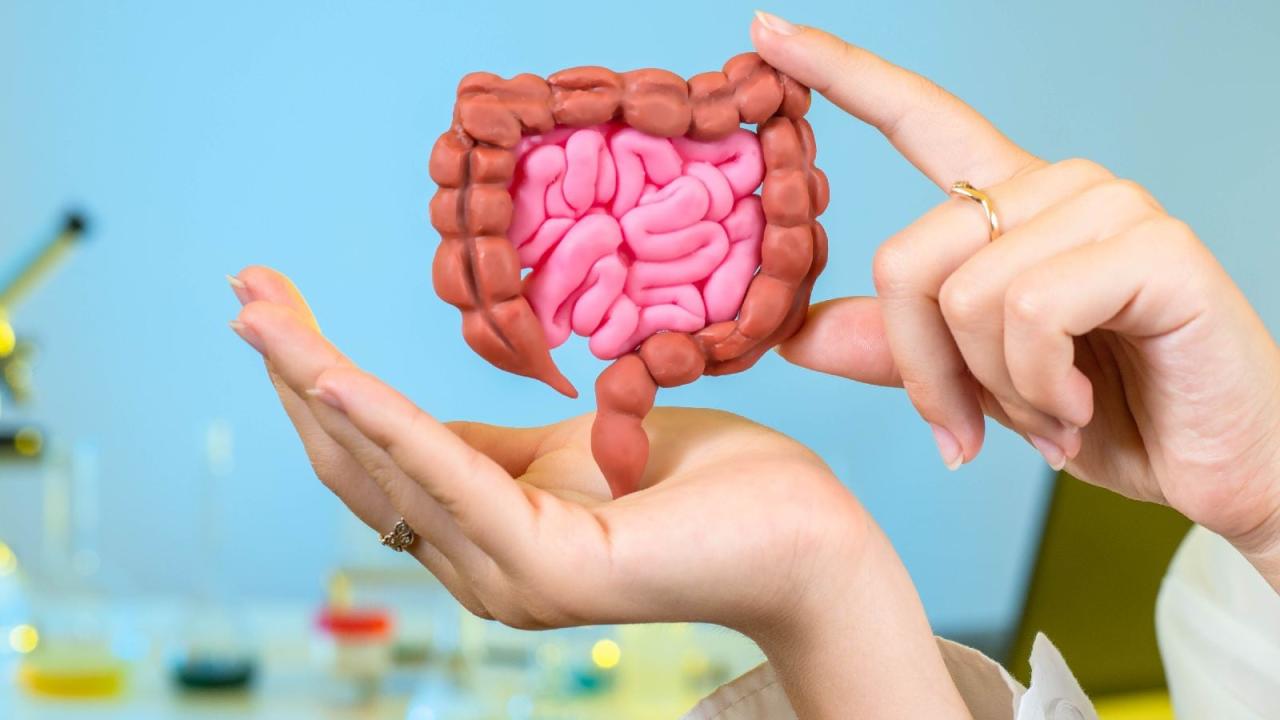In an age of increasing awareness about holistic well-being, the intricate world within our digestive system, often referred to as our gut, has emerged as a cornerstone of overall health. Far from being merely an organ for digestion, the gut is a complex ecosystem teeming with trillions of microorganisms that profoundly influence everything from our immunity and metabolism to our mood and cognitive function. Prioritizing gut harmony isn’t just about avoiding digestive discomfort; it’s about making smart health management choices that nurture this vital internal environment, unlocking a cascade of benefits for the entire body. This isn’t just about diet; it’s about understanding the intricate connections between our internal landscape and our external vitality, ensuring a foundation for long-term health.
The Gut as A Health Command Center

The scientific understanding of the gut has undergone a revolutionary shift. It’s now recognized not merely as a digestive tract but as a highly sophisticated system, often dubbed the “second brain,” with profound implications for almost every bodily function.
A. The Gut Microbiome: The Inner Ecosystem:
* Trillions of Microbes: Our gut is home to trillions of microorganisms, including bacteria, viruses, fungi, and other microbes, collectively known as the gut microbiome. This community is incredibly diverse and unique to each individual.
* Beneficial vs. Harmful Bacteria: A healthy gut has a diverse and balanced population of beneficial bacteria (probiotics) that keep harmful bacteria in check. Dysbiosis, an imbalance, can lead to various health issues.
* Symbiotic Relationship: We have a symbiotic relationship with our gut microbes. They help us digest food, produce essential vitamins, and train our immune system, while we provide them with a home and nutrients.
B. The Gut-Brain Axis: A Bidirectional Highway:
* Enteric Nervous System (ENS): The gut has its own independent nervous system, the ENS, often called the “second brain.” It’s embedded in the walls of the digestive tract and can operate autonomously.
* Vagus Nerve Connection: The gut and brain communicate extensively through the vagus nerve, a major cranial nerve, forming a bidirectional highway. This means signals travel both from the brain to the gut and from the gut to the brain.
* Neurotransmitter Production: Many neurotransmitters, including about 90% of the body’s serotonin (a key mood regulator), are produced in the gut by gut microbes. This highlights the profound link between gut health and mental well-being.
* Impact on Mood and Cognition: Research suggests that an imbalanced gut microbiome can influence anxiety, depression, stress response, and even cognitive functions like memory and learning.
C. Immune System Hub:
* 70% of Immune Cells: An astonishing 70-80% of the body’s immune cells reside in the gut-associated lymphoid tissue (GALT). This makes the gut a critical training ground and command center for the immune system.
* Distinguishing Friend from Foe: A healthy gut barrier and a balanced microbiome are crucial for the immune system to distinguish between harmless food particles and harmful pathogens, preventing excessive inflammation or autoimmune responses.
* Impact on Autoimmune Diseases and Allergies: Gut dysbiosis and increased gut permeability (“leaky gut”) are increasingly linked to the development and severity of autoimmune diseases, allergies, and sensitivities.
D. Metabolism and Nutrient Absorption:
* Digestion and Nutrient Extraction: Gut microbes play a vital role in breaking down complex carbohydrates (fiber) that human enzymes cannot, fermenting them into short-chain fatty acids (SCFAs) like butyrate, which are crucial energy sources for gut cells and have systemic anti-inflammatory effects.
* Vitamin Production: Certain gut bacteria produce essential vitamins, including Vitamin K and various B vitamins.
* Weight Management: The composition of the gut microbiome is being studied for its potential influence on energy harvest from food, fat storage, and metabolic health, impacting weight gain or loss.
E. Skin Health and Beyond:
* Gut-Skin Axis: Emerging research points to a connection between gut health and various skin conditions, including acne, eczema, and psoriasis.
* Gut-Liver Axis: The gut and liver constantly interact, influencing detoxification and metabolic processes.
* Cardiovascular Health: Gut microbes can influence cholesterol levels and inflammation, impacting cardiovascular risk factors.
Practical Tips for a Healthier Gut
Achieving and maintaining gut harmony involves a multifaceted approach focusing on diet, lifestyle, and mindful choices.
A. Dietary Foundations: Feed Your Microbes Wisely:
* Prioritize Fiber (Prebiotics): Fiber is the primary food source for beneficial gut bacteria.
* Soluble Fiber: Found in oats, barley, apples, citrus fruits, beans, lentils. Forms a gel-like substance, helping with digestion.
* Insoluble Fiber: Found in whole grains, nuts, seeds, and vegetable skins. Adds bulk to stool, promoting regularity.
* Resistant Starch: A type of carbohydrate that resists digestion in the small intestine and ferments in the large intestine, feeding beneficial bacteria. Found in cooled cooked potatoes/rice, green bananas, and legumes.
* Include Fermented Foods (Probiotics): These foods contain live beneficial bacteria that can transiently enrich your gut microbiome.
* Examples: Yogurt (with live and active cultures), kefir, sauerkraut, kimchi, kombucha, tempeh, miso.
* Quality Matters: Look for products that specify “live and active cultures” and are unpasteurized after fermentation.
* Eat a Diverse Range of Plants: Aim for a wide variety of fruits, vegetables, whole grains, nuts, and seeds. Each plant contains different fibers and phytochemicals that feed different species of gut bacteria, promoting diversity. Aim for 30+ different plant types per week.
* Limit Processed Foods, Sugar, and Artificial Sweeteners:
* Processed Foods: Often high in unhealthy fats, sugar, and artificial additives that can negatively impact gut diversity and promote inflammation.
* Added Sugars: Can feed less beneficial bacteria and contribute to dysbiosis.
* Artificial Sweeteners: Some studies suggest they can negatively alter the gut microbiome and impact glucose metabolism.
* Reduce Red and Processed Meats: High consumption of these can lead to the production of compounds that may be detrimental to gut and cardiovascular health.
* Stay Hydrated: Water is essential for healthy digestion, fiber movement, and overall gut function.
B. Lifestyle Factors: Beyond the Plate:
* Manage Stress: Chronic stress can significantly impact gut health by altering gut motility, increasing gut permeability, and influencing microbiome composition.
* Techniques: Mindfulness, meditation, yoga, deep breathing exercises, spending time in nature, hobbies.
* Prioritize Sleep: Adequate, restorative sleep is crucial for gut health. Sleep deprivation can negatively impact the gut microbiome and increase inflammation. Aim for 7-9 hours of quality sleep per night.
* Regular Physical Activity: Moderate exercise can positively influence gut microbial diversity and promote healthy gut function. Avoid over-training, which can be a stressor.
* Avoid Unnecessary Antibiotics: Antibiotics are life-saving when needed, but they kill both good and bad bacteria, significantly disrupting the microbiome. Only use them when prescribed and necessary.
* Limit Alcohol Intake: Excessive alcohol consumption can damage the gut lining, alter the microbiome, and contribute to inflammation.
* Quit Smoking: Smoking negatively impacts gut health, contributing to inflammation and increasing the risk of various digestive disorders.
C. Strategic Supplementation (Consult a Professional):
* Probiotic Supplements: Can be beneficial, especially after antibiotic use, during periods of stress, or for specific digestive issues.
* Considerations: Choose reputable brands with clinically studied strains, appropriate dosages (CFUs), and diverse strains (e.g., Lactobacillus, Bifidobacterium). Refrigeration may be required for some.
* Prebiotic Supplements: Supplements containing fibers like inulin, FOS (fructooligosaccharides), or GOS (galactooligosaccharides) can feed beneficial gut bacteria.
* Omega-3 Fatty Acids: Anti-inflammatory, can support gut lining integrity.
* Vitamin D: Plays a role in immune regulation, including gut immunity.
* L-Glutamine: An amino acid that is a primary fuel source for gut cells and can help repair the gut lining.
* Digestive Enzymes: May be helpful for individuals with specific digestive enzyme deficiencies to improve nutrient absorption.
* Important Note: Always consult with a healthcare professional (doctor, registered dietitian) before starting any new supplements, as individual needs vary.
D. Mindful Eating Practices:
* Chew Thoroughly: Proper chewing is the first step of digestion, breaking down food and signaling the release of digestive enzymes.
* Eat Slowly and Mindfully: Allows your body to register fullness and improves digestion. Avoid eating rapidly or while distracted.
* Don’t Overeat: Eating too much can strain the digestive system.
* Listen to Your Body: Pay attention to how different foods make you feel. Identify and avoid trigger foods that cause discomfort.
Common Gut Health Challenges and Their Solutions

Understanding common gut issues and how to address them is a crucial part of smart health management.
A. Irritable Bowel Syndrome (IBS):
* Symptoms: Abdominal pain, bloating, gas, diarrhea, and/or constipation.
* Approaches:
* Low-FODMAP Diet: Temporarily restricting certain fermentable carbohydrates (FODMAPs) that can trigger symptoms in sensitive individuals, then reintroducing them to identify triggers.
* Stress Management: As stress is a major trigger, practices like meditation, yoga, and therapy are crucial.
* Peppermint Oil: Can help alleviate IBS symptoms for some.
* Probiotics: Specific strains may help improve symptoms.
B. Constipation:
* Causes: Insufficient fiber and water intake, lack of physical activity, certain medications, stress.
* Approaches:
* Increase Fiber Intake: Gradually increase consumption of fruits, vegetables, whole grains, and legumes.
* Hydration: Drink plenty of water throughout the day.
* Regular Exercise: Promotes gut motility.
* Magnesium Supplementation: Can help relax bowel muscles.
* Probiotics: Some strains can help improve regularity.
C. Diarrhea:
* Causes: Infections, food intolerances, stress, certain medications (e.g., antibiotics), inflammatory bowel disease.
* Approaches:
* Hydration and Electrolytes: Crucial to prevent dehydration.
* Bland Diet: Foods like bananas, rice, applesauce, toast (BRAT diet) can help.
* Probiotics: Especially after antibiotic use, to restore beneficial bacteria.
* Identify Triggers: If chronic, work with a doctor to identify underlying causes (e.g., food intolerances, IBD).
D. Bloating and Gas:
* Causes: Food intolerances, dysbiosis, rapid eating, consuming gas-producing foods (certain beans, cruciferous vegetables), SIBO (Small Intestinal Bacterial Overgrowth).
* Approaches:
* Identify Trigger Foods: Keep a food diary to pinpoint culprits.
* Chew Slowly: Reduces air swallowing.
* Enzyme Supplements: Digestive enzymes can help break down difficult-to-digest foods.
* Herbal Remedies: Fennel or ginger tea can help reduce gas.
* Rule Out SIBO: If persistent, consult a doctor for testing.
E. Heartburn/GERD (Gastroesophageal Reflux Disease):
* Causes: Weak lower esophageal sphincter, certain foods (fatty, spicy, acidic), overeating, lying down after meals.
* Approaches:
* Dietary Modifications: Avoid trigger foods.
* Smaller, More Frequent Meals: Reduces pressure on the sphincter.
* Avoid Eating Before Bed: Allow time for digestion before lying down.
* Maintain Healthy Weight: Excess weight can put pressure on the abdomen.
* Probiotics: Some research suggests a role in improving symptoms by balancing gut flora.
The Future of Gut Health
The field of gut health is experiencing rapid innovation, promising highly personalized and precise interventions that will revolutionize digestive and overall well-being.
A. Personalized Nutrition and Microbiome Analysis:
* Stool Testing: Advanced analysis of an individual’s gut microbiome composition to identify imbalances, key beneficial bacteria, and potential pathogens.
* Dietary Recommendations: Personalized dietary advice based on microbiome profile, optimizing food choices to feed specific beneficial bacteria and address individual metabolic needs.
* Genomic Factors: Understanding how an individual’s genetics interact with their diet and microbiome to influence health outcomes.
B. Next-Generation Probiotics and Prebiotics:
* Precision Probiotics: Developing and delivering specific strains or consortia of bacteria tailored to an individual’s unique microbiome and health conditions (e.g., for IBS, obesity, or mental health).
* Postbiotics: Exploring the health benefits of metabolites and compounds produced by beneficial gut bacteria during fermentation (e.g., short-chain fatty acids) as therapeutic agents.
* Designer Prebiotics: Creating novel prebiotics that specifically target and nourish particular beneficial bacterial strains in the gut.
C. Fecal Microbiota Transplantation (FMT) Expansion:
* Beyond C. difficile: While currently established for recurrent Clostridioides difficile infection, research is exploring FMT for other conditions like inflammatory bowel disease (IBD), obesity, and neurological disorders.
* Standardization and Delivery: Developing standardized, safe, and convenient methods for FMT delivery (e.g., encapsulated pills).
D. AI and Digital Health Tools:
* AI-Powered Diagnostics: AI analyzing gut microbiome data to predict disease risk, identify personalized dietary triggers, and suggest interventions.
* Wearable Gut Sensors: Future wearables or ingestible sensors that can monitor gut function, inflammation markers, or microbiome activity in real-time, providing continuous feedback for individuals and clinicians.
* Digital Therapeutics for Gut Health: Apps and software programs that deliver evidence-based interventions for gut conditions (e.g., IBS management programs, mindfulness for digestive health).
E. Gut-Targeted Therapies for Systemic Diseases:
* Neurological Conditions: Research into how gut health influences neurodegenerative diseases (Parkinson’s, Alzheimer’s) and mental health disorders, leading to gut-targeted therapies for these conditions.
* Autoimmune Diseases: Developing interventions that modulate the gut microbiome to prevent or treat autoimmune diseases.
* Metabolic Syndrome: Therapies that leverage gut microbes to improve glucose metabolism, insulin sensitivity, and weight management.
Conclusion
The journey to gut harmony is a fundamental shift in how we approach our health, moving beyond symptom management to nurturing the very core of our internal well-being. The burgeoning scientific understanding of the gut microbiome’s profound influence on immunity, metabolism, mood, and countless other bodily functions underscores its critical role. By consciously adopting smart health management choices—prioritizing a diverse, fiber-rich, and fermented food diet, managing stress, ensuring adequate sleep, and being mindful of medication use—we can cultivate a thriving inner ecosystem. While challenges in research, accessibility, and personalization remain, the relentless pace of innovation in eye care is rapidly moving towards a future where precise, individualized interventions will empower us to better protect and optimize our precious gut health, ensuring a vibrant foundation for a long and healthy life.












